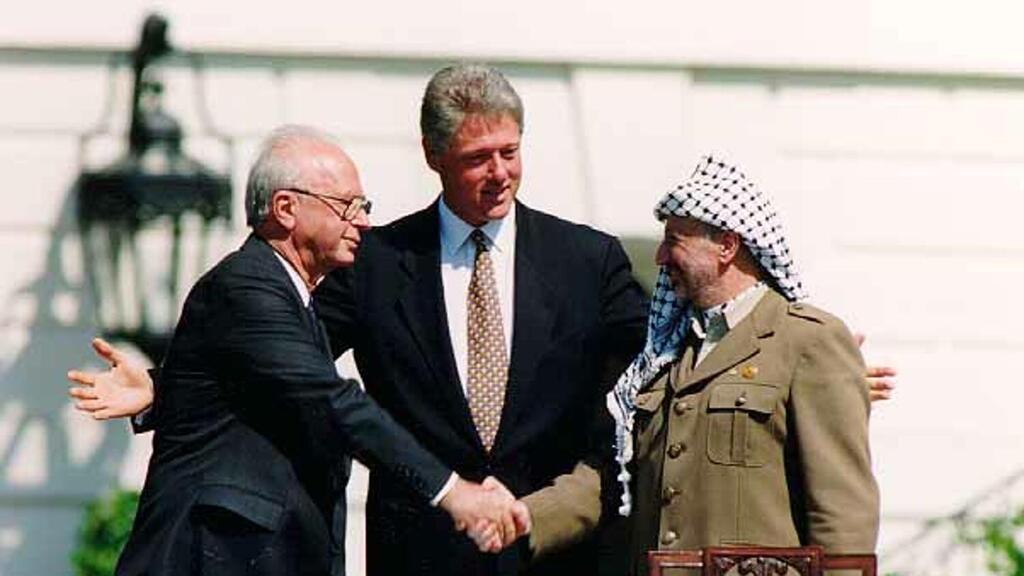Getting your Trinity Audio player ready...
Although many saw the Oslo Accords signed in 1993 as a historic breakthrough that could lead towards a resolution of the Israeli-Palestinian conflict. For then-prime minister, Yitzhk Rabin, the accords were a way to ensure Israel's continued existence as a Jewish and democratic state.
4 View gallery


Signing of the Oslo Accords, Yitzhak, Rabin Bill Clinton and Yasser Arafat
(Photo: Reuters)
For Rabin, who saw matters of security as paramount, the agreement was the way to prevent a bi-national future for Israel.
This was forgotten by those who saw the accords as a strategic error on the part of the government, and an illusion that Palestinian leader Yasser Arafat was set on making peace with Israel.
Rabin was a proponent of having Jordan as a partner to any future agreement with the Palestinians. But his position changed after the start of the First Intifada, which broke out in the West Bank and the Gaza Strip. He concluded that the continued occupation of the territories is harmful to Israel's security.
In his view, if Israel continued to occupy the territories, it would eventually have to grant full citizen rights to Palestinians, thereby losing its firm Jewish majority, or be considered an apartheid state by the international community.
The Oslo Accords, he hoped, would result in a separation between Israelis and Palestinians and allow an autonomy in the territories.
In hindsight, 28 years after the Declaration of Principles - which launched the Oslo process - was signed, Rabin's effort to prevent a bi-national state was at least partially successful.
In contrast with the romantic vision of a new Middle East, held by then-foreign minister, Shimon Peres, Rabin's coveted political separation from the Palestinians came to pass.
The accords birthed the Palestinian Authority creating a separate entity for of the West Bank and Gaza for the Palestinians.
The possibility of a peace agreement with the Palestinians in the foreseeable future is unlikely, but the Palestinians were given a political representation, while Israel was not forced to concede any of its security assets, such as the Jordan Valley, the West Bank settlements or any part of Jerusalem.
It is difficult to know what Rabin envisioned as a permanent solution between Israel and the Palestinians, but based on his words at the time, he likely never intended to reach one and considered the disagreements between the parties too vast to ever overcome.
In that case, the Oslo Accords only served to achieve a separation between Israel and the Palestinians.
The fact that he continued to talk to Arafat, even after it became clear that the Palestinian leader had no intention of reining in the terror groups that were wrecking havoc during the intifada, bolsters the notion that the former prime minister's main strategic goal was to prevent any future formation of a bi-national state that would replace the Jewish and democratic one.
Dr. Ori Wartman is a fellow at the Institute for National Security Studies (INSS)




